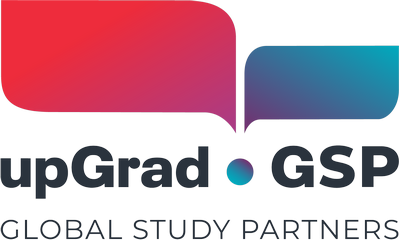The high number of international students in Canada in recent years attests to the country’s allure as a premier study-abroad destination. Along with this influx comes a heightened need to prioritise student safety. It also demands support for sustainable growth concerning local housing, healthcare and other services. As a response, the Canadian government has introduced measures designed to better protect international students and support sustainable population growth in the country. These include setting a new student cap, requiring provincial attestation letters, adjusting the Post-Graduate Work Permit (PGWP) duration and limiting the PGWP eligibility for public-private partnership college programs. Here’s a quick overview of the latest Canada news for international students to keep updated on.
Student cap
The most significant Canada news for international students in 2024 revolves around a new cap on student permit applications for two years. When first reported, the cap for 2024 was set at 360,000 approved study permits—a 35% decrease from last year (650,000). But Canada’s Immigration Minister Marc Miller has revealed that the actual number of study permits available for college and undergraduate international students is approximately 292,000.
Immigration Refugees and Citizenship Canada (IRCC) clarified that cap-exempt study permits were included in the original estimate. It was also noted that the immigration minister doesn’t have statutory authority to limit the number of approved visas. It can only dictate the number of applications processed by IRCC. Minister Miller further affirmed this, stating “I can only cap the applications and not the actual issuance of visas. The way it works through the math is that we assume a level of acceptance and rejection at our level, and it churns out a bunch of visas. What we did was cap the intake at a certain level then we distributed it generally by population across Canada.”
Minister Miller also gave instructions to cap application processing at 606,250 permits. This excludes primary and secondary schools, as well as master’s and doctorate university programs. Current study permits will also not be affected. At an average approval rate of 60%, this still results in approximately 360,000 approved study permits this year.
Provincial attestation letter requirement
In other IRCC Canada news for international students, the department now requires a provincial attestation letter (PAL) from a province or territory for every study permit submitted to the department. IRCC urges provinces and territories to establish plans for issuing PALs by 31 March.
Individual provincial and territory caps have been established with the student permit cap, weighted by population. This means locations with the most unsustainable international student growth will experience more decreases. Accordingly, the provinces of Ontario, Quebec and British Columbia are expected to see the highest number of study permit allocations. This is because these three are the most populous provinces in Canada. IRCC shall allocate a portion of the cap to every province and territory. Each one will then distribute the allocation among their designated learning institutions (DLIs).
The PAL serves as evidence that the student has been accommodated within the given allocation under the national cap. The IRCC will reject applications without it unless exempted.
Adjusted PGWP duration
The latest immigration news in Canada for international students also involves the PGWP. This post-study work opportunity allows foreigners to remain in the country for employment after completing their studies.
Beginning 21 February, graduates of master’s degree programs are eligible to apply for a three-year post-graduate work permit. This applies to students who:
- have finished a program lasting less than two years
- meet all other PGWP eligibility criteria.
Previously, the length of a post-graduation work permit was solely based on the length of a student’s program. The government, however, acknowledges that these graduates demonstrate strong potential to thrive in the local job market. Thus, they have extended the duration of the PGWP, providing eligible candidates with enough opportunities to gain the needed work experience required for permanent residency applications.
For programs other than master’s degrees, the length of the PGWPs will stay the same. The maximum limit remains at three years.
PGWP eligibility for public-private partnership college programs
Starting 1 September, international students who begin a study program that is part of a curriculum licensing agreement will no longer be eligible for a post-graduation work permit.
Some provinces allow public colleges to license their curriculum for delivery through affiliated private colleges under a curriculum licensing agreement. Through this, students can attend a private college but earn a diploma from a public institution. These programs have been popular with international students in recent years. However, concerns about the quality of education offered and the insufficient support available to students, along with the lack of oversight, have been raised regarding these arrangements. To curb the enrolment of international students in these programs, the IRCC implemented the aforementioned PGWP limit.
Stay updated on Canada news for international students
Canada’s new measures surrounding international students have received mixed reactions. A majority of stakeholders are expressing concerns about their impact towards university enrollments and student experiences. Nonetheless, the policy changes reflect the country’s commitment to delivering safe and high-quality education to international students while promoting sustainable growth in the education sector.
Get in touch with our business development experts to keep up to date with the latest Canada news for international students.




